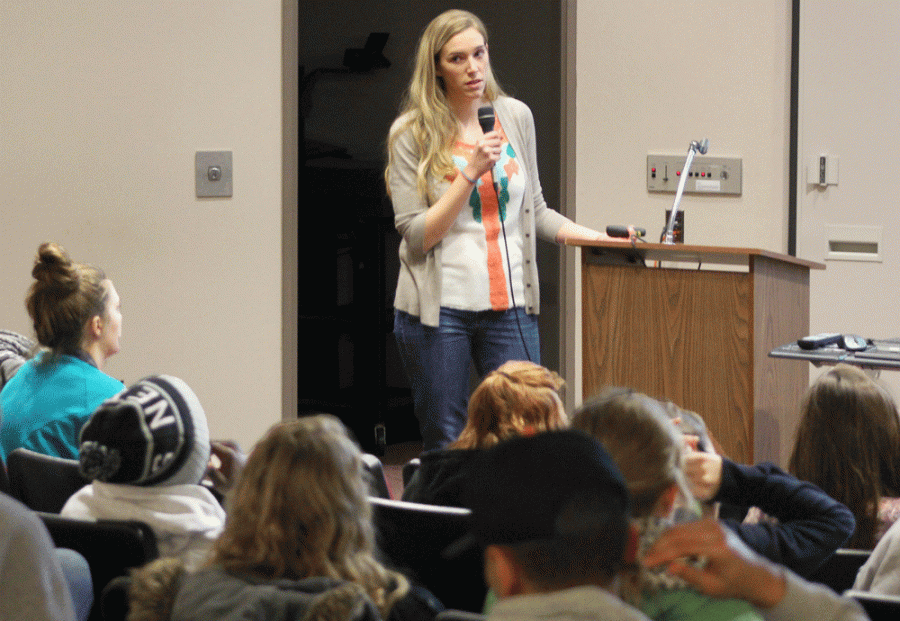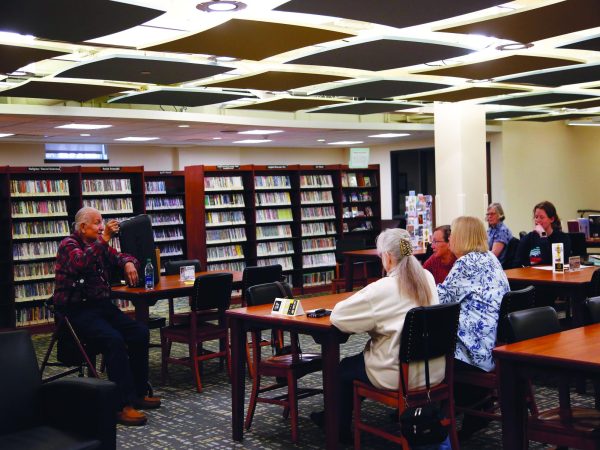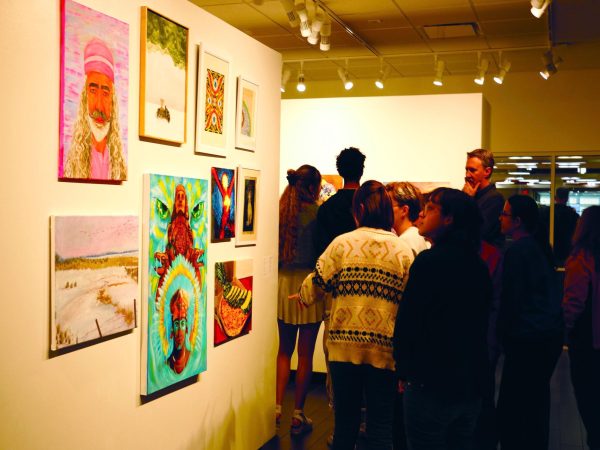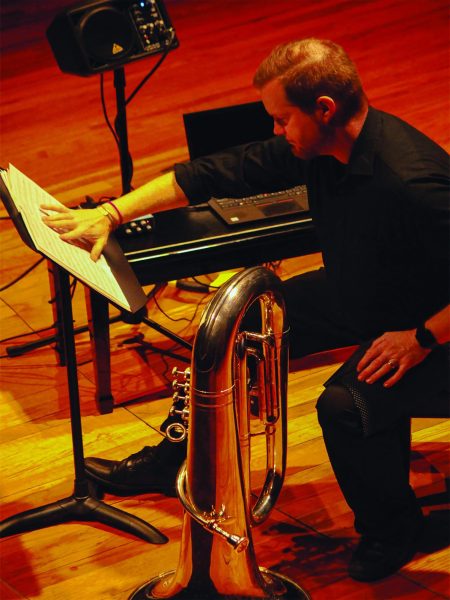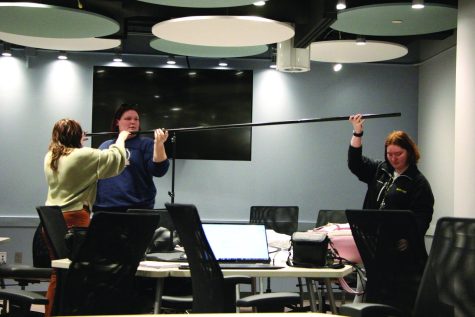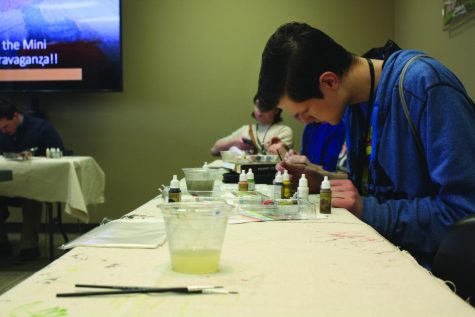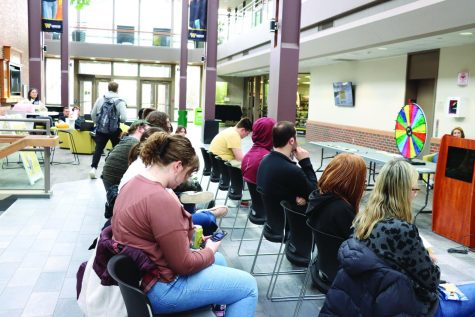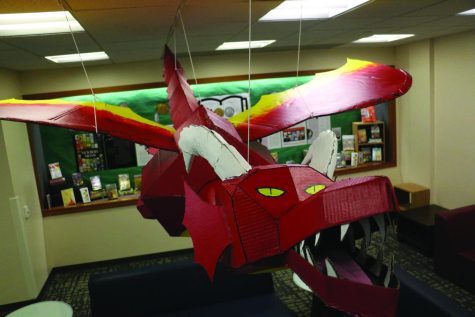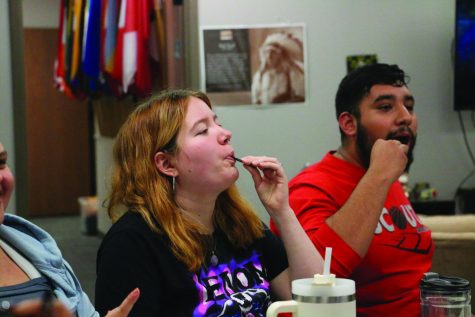Hardest job you’ll ever love
Leah Travnicek shares her experiences in the Peace Corp
Columbus, Neb., native, Leah Travnicek, spent two years in Mozambique, Africa for the Peace Corps
March 4, 2015
It’s the hardest job you’ll ever love.
This is what Leah Travnicek was told before getting involved with the Peace Corps and she said it’s the same advice she would give to someone interested in applying.
Travnicek gave a presentation, hosted by the Multicultural Center, last Wednesday, which covered her time spent in Monapo, a small village in Mozambique, Africa.
A 2011 graduate from Washburn University in Topeka, Kan., Travnicek, with a bachelor’s degree in science and biology, decided to join the Peace Corps during her senior year. She left that September for Sub-Saharan Africa, where she spent two years.
Travnicek hadn’t taken education classes before her departure and yet was prepared to help in teaching biology at a secondary school. Upon arrival, a bit more was added to her plate.
“Most people, even if they’re told they are going to be teaching science, when they get to their school, their school is like, ‘no, you’re going to teach English because you speak English,’” Travnicek said.
Without the use of any real teaching resources, aside from chalk and a black board, Travnicek taught English, biology and chemistry to 11 and 12 graders.
“They don’t even have textbooks,” Travnicek said, “You are their textbook.”
There’s quite a bit of cultural shock when moving to a country so different from our own. Travnicek said that during the first three months, the body has to adjust to a new environment and it’s easy to get sick.
“Peace Corps has their own doctors and they send you medicine and stuff monthly so any issues can be taken care of pretty quickly.
“You have to go back and relearn all of the basics, like how to make a fire, how to cook your food or how to wash your clothes,” Travnicek said.
For travel, it was possible to pay for a ride on a 12-passenger bus, but Travnicek said that hitchhiking was easier and quicker and became the preferred way of travel.
Food depended a lot on what was in season at the market, but some of the staples were eggs, rice and beans.
“Making anything you want to eat takes a lot of time because you have to make a fire if you want to heat something up,” Travnicek said.
Travnicek said her time in Africa was a life-changing experience. When she left for America in December 2013, she said it was a bit difficult.
“I cried,” Travnicek said.
“I was really excited to see my family and go home, but it was tough knowing that I probably wouldn’t ever see these people, or the kids that I loved and became my family, ever again.”
“Overall, I would just say I’m a more relaxed, flexible kinda person,” Travnicek said.
“Also, before I went, I didn’t pay much attention to the news or world events. But I follow much more closely with current events and what’s going on in the world.”







